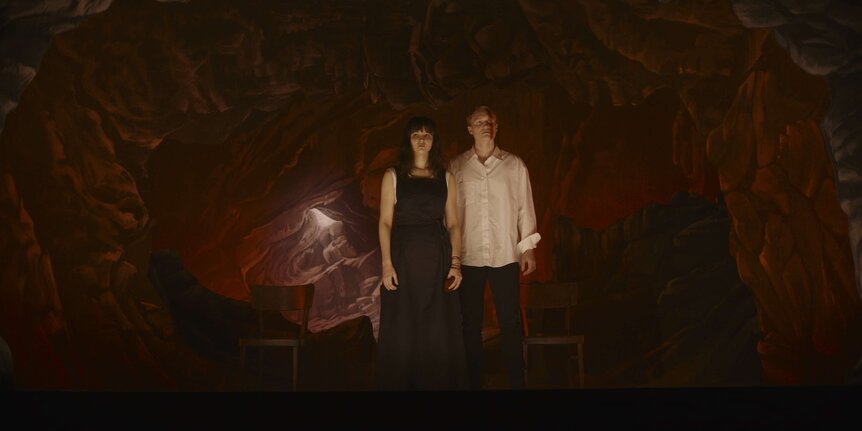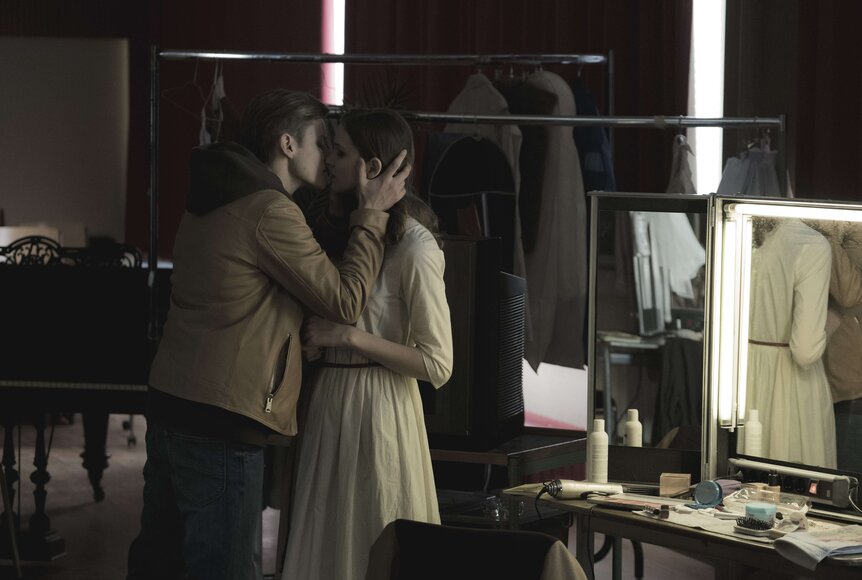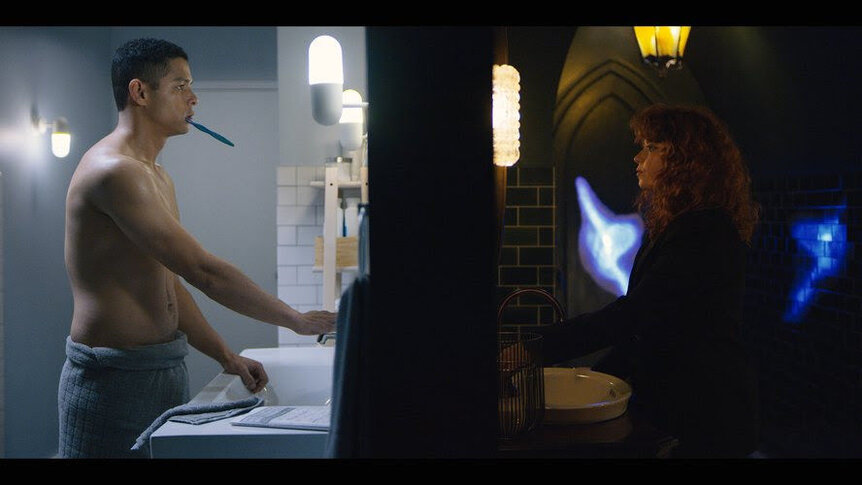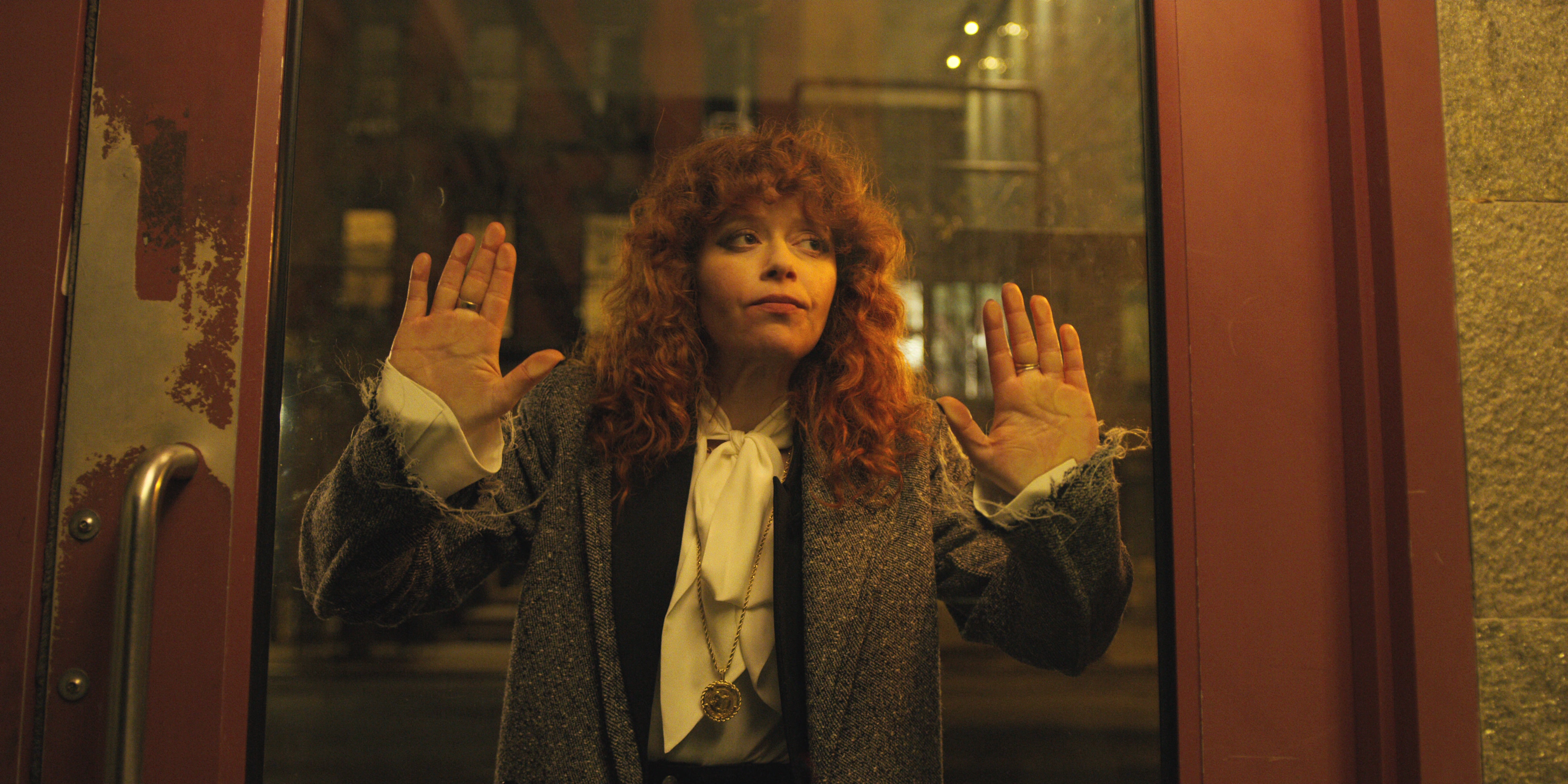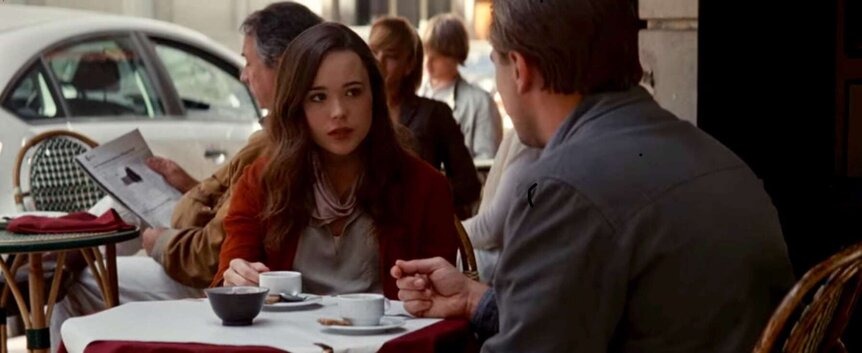Create a free profile to get unlimited access to exclusive videos, sweepstakes, and more!
The lure of Ariadne's maze in Dark, Russian Doll, and Inception
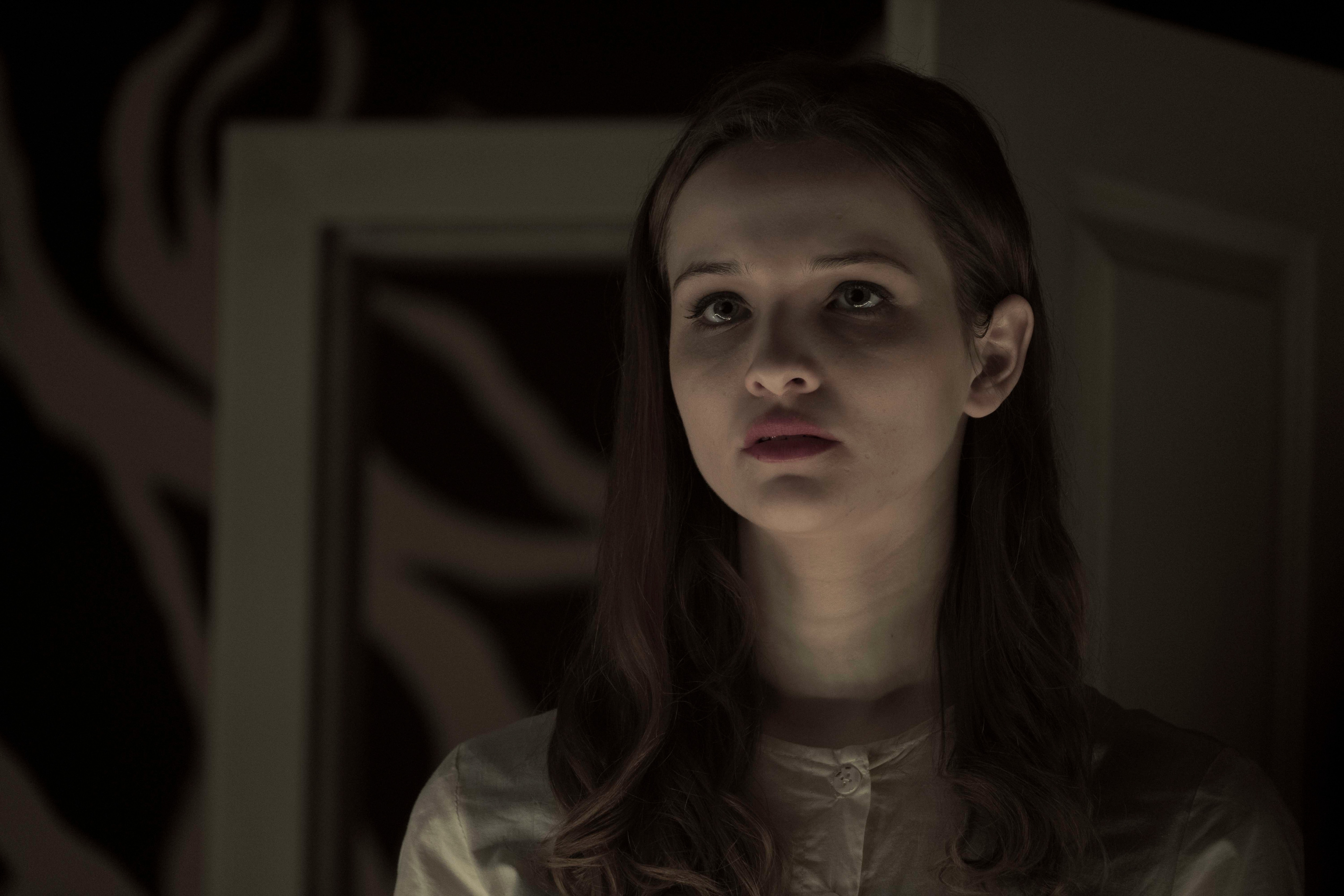
Mirroring the maze she is charged with watching over, the Greek myth of Ariadne veers off in different directions. Sometimes it ends in heartbreak and death; in other depictions, she ends up married to the god of wine, Dionysus. Assisting Theseus by giving him a sword and a ball of yarn is an element that remains the same; he cannot defeat the Minotaur or escape what would become his tomb without the aid of Ariadne. This character's connection with the labyrinth has long been a source of inspiration for philosophers, composers, and writers producing many great works across the centuries. Ariadne's Thread is a name given to trial-and-error based reasoning in puzzle solving. Her name might mean "very holy" but in science and art, her role assisting Theseus' escape has defined her.
Friedrich Nietzsche, Anton Chekhov, and A.A. Milne have all used her moniker in a poem or story title, and she is still a source of inspiration today whether a character name, plot point, or episode title. Dark, Russian Doll, and Inception have all drawn on this myth to reference literal and figurative mazes in the dreamscapes, multiple universes, and time loops of these narratives. The role of women at the heart of each of these stories differs, revealing there is more to this character's inspiration than her ball of thread, lovesick heart, and family betrayal.
Spoilers ahead for Dark.
In the third and final season of the mind-bending sci-fi series Dark, an alternate version of the small German town Winden is revealed to be part of the overall time travel design — the split is later revealed to be from the third and original world. This mirror universe looks very similar to the one we have spent two seasons in, the main difference is Mikkel (Daan Lennard Liebrenz) never time-traveled back to 1986 and therefore Jonas (Louis Hofmann) doesn't exist. Martha (Lisa Vicari) is still playing the titular role in the school production of Ariadne, a play based on the aforementioned myth. The monologue she spoke in Season 1 nodded to the cycle the town was embroiled in, but little did she know exactly how deep this conspiracy would go, "From then on, I knew that nothing changes. That all things remain as before. The spinning wheel turns, round and round in a circle. One fate tied to the next."
The latter point is a vital one in a town where everyone is seemingly related. Incest is a common theme in Greek mythology and the soap-style twists that Dark excels at reveals a similarly twisted family tree. Time travel has led to accidental hook-ups with aunts and a mother/daughter relationship that will wrinkle your brain. Untangling this mess is no simple feat, which is also acknowledged in Martha's Ariadne monologue, "The thread, red like blood, that cleaves together all our deeds. One cannot unravel the knots. But they can be severed. He severed ours, with the sharpest blade. Yet something remains behind that cannot be severed. An invisible bond." Viewers of Dark will know how significant the knot between words is and how often it is referenced — if you were playing a drinking game it would get messy very quickly.
In the first episode, the scarf Martha wears on that first fateful night to the cave is the color of Ariadne's thread. Her brother Mikkel's coat is also this shade tying the two together, but he doesn't follow Theseus' path and ends up lost inside the maze. Red yarn in the caves leads to the door in which other years are accessed, which Jonas and Ulrich follow to get to the past — it is also used on the investigation board and the necklaces linking past and present. The caves of Winden are a portal that some never escape from.
The timeline is represented by the infinity sign because it is a line that has no beginning or end. Quantum entanglement is a factor that ensures that multiple paths can be taken, expanding the maze further. Dramatic irony ensures that taking one path to prevent the future has the opposite effect. Martha plays the fabled Greek princess in the school play but she doesn't possess the tools to help Jonas slay the Minotaur. Rather, she is used as a guide toward his fate of becoming Adam.
"Everyone, whether the daughter of a king or not, has one foot in the shadow and only the other in the light," is an assessment of Ariadne in the play. This concept of light and dark runs throughout the series, which suggests a world in the caves and one out in the world. A duality that exists in the existential conversations woven through the timelines, going back to the 1800s and the relatives of the scientist and clockmaker Tannhaus. Reading the same Ariadne monologue in the 19th century prompts a remark about how the dead live on through time, which will later prompt the beginning of this whole mess. The maze does, in fact, have an exit. And for a Greek mythology play on words, H.G. Tannhaus' book, A Journey Through Time was published by Mino Tauros.
While not quite an anagram, the name Nadia can be spelled using the letters of Ariadne (with a spare "er"). This is the name of Natasha Lyonne's character in Russian Doll and the Season 1 finale is titled "Ariadne" — an episode Lyonne wrote and directed. The time-loop predicament Nadia has found herself stuck in with Alan (Charlie Barnett) is a labyrinth proving impossible to navigate out of. Spots like the deli, park, bar and various apartments are fixed points; sometimes a new location is added but it is rare they make it more than a few days before the cycle resets. Nadia compares their predicament to a video game as they try to figure out a solution. She thinks there is a bug in the code, whereas Alan believes it is a morality issue. Either way, this maze they are caught in has a bathroom save point for each of them.
Visually, the corridors and New York City streets repeat; every new path results in a dead-end leading back to Maxine's (Greta Lee) trippy bathroom. Production designer Michael Bricker deservedly won an Emmy for Russian Doll, utilizing each space as part of the overall maze. In an interview with Deadline last year, Bricker talked about this concept, "The loft is actually designed as a set of concentric rings, based on how she would move through the space." A nod to the Matryoshka dolls of the title, but it also suggests Nadia's seemingly inescapable predicament.
The maze is Maxine's apartment and the repeat time loop, but it also takes on a figurative form. Both Nadia and Alan are avoiding personal demons, which they need to slay to escape. They are each other's Ariadne — the sword and the red thread is their crossed paths on that first night. Instead of splitting off in different directions, the way to slay this Minotaur is to acknowledge the past and the present.
In a physical sense, their clothing is also a tether in the finale. Alan's gifted (red) pattern scarf and Nadia's new choice of white pussy-bow blouse are visually unifying. Their escape from the maze is only possible with the help of the other. Theseus couldn't defeat the Minotaur and escape without an assist, Nadia realizes that her form of self-protection through self-reliance will leave her trapped for all time-looping eternity.
Control is lacking for the characters discussed, but in sharing her name with this Greek mythology figure, Inception's Ariadne (Ellen Page) has a unique gift that puts her in a position of power. She is a graduate student from the prestigious Parisian Ecole d'Architecture hired by Dom Cobb (Leonardo DiCaprio) to design three dream mazes for the Fischer (Cillian Murphy) job. As a newcomer to the world of dream heists, she is the audience entry point into this complex and intriguing method of information extraction (or in this case, inception). Nevertheless, as the maze architect, she is effectively the thread that will guide the group out. She doesn't give anyone a sword, but Ariadne has the tools to battle the variety of mental protections and projections Fischer has been trained to use. Not only that but when she is first introduced, the rust color jacket is a visual link to the red thread of the original Greek myth without being too on the nose — the name is already doing the reference heavy lifting.
Turning Ariadne into the architect of the maze and not just the gatekeeper, she gains more authority in this portrayal. In the original myth, love is why she breaks her father's trust and gives Theseus the sword and thread, but Nolan's Ariadne is driven by intellectual desire rather than romance. This doesn't negate his tendency to rely on dead wife characters — there is one of those in Inception — but making his male protagonist emotionally vulnerable rather than the creator of the maze is notable.
Time loops, alt-universes, and dreamscapes all provide plenty of obstacles that create a labyrinth. Ariadne's story can be spun in various directions within contemporary narratives that still deliver fresh takes on this ancient tale — in this sense, the maze is endless. Dark, Russian Doll, and Inception all take on different aspects of the myth, utilizing themes of repeat cycles, trauma, obstacles, and teamwork. Escape takes on different forms once the monster has been vanquished, but the women of each story are not left to die alone or with a broken heart. Patterns are broken, bonds remain, and the darkness has turned to light.
